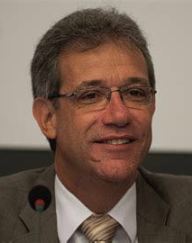Free Thinking - Spiritism for the 21st century

Ademar Arthur Chioro dos Reis
Special Adviser to the Presidency of CEPA
Such changes, meanwhile, although extremely relevant, are not enough to contribute to the project of strengthening a secular and free-thinking view of Spiritism and connect it to the demands that arise in the 21st century.
One of the main objectives contained in the "Strategic Guidelines for the Management of CEPA 2016/2020" is to develop and spread the kardecist, progressive, secular and free-thinker perspective on Spiritism. To achieve this, one of the proposed strategies, which now strives, is to produce educational and literary materials, which will be disseminated by all available audiovisual media, allowing the development of a spiritist free-thinking.
It is in this sense that the Executive Council of CEPA, in association with the Center for Research and Spiritist Documentation (CPDoc), an institution formed by spiritist thinkers from various parts of Brazil and Argentina, developed an ambitious project that begins to take shape as of this year: the collection “Free Thinking - Spiritism for the 21st century”.
This collection aims to present, in a synthetic way, but without prejudice to the conceptual precision, the theoretical positions of a secular and free-thinking perspective of Spiritism, which have been developed in Brazil, in the Americas and in Europe in recent years. This is characterized by a different contemporary view, on the Spiritism founded by Allan Kardec in 1857, from the publication of his masterpiece: The Book of Spirits, and its institutionalization and popularization in various corners of the planet.
As it spread, Spiritism underwent processes of absorption and miscegenation with different interpretations, religious, and social practices of the cultural context of each society and each era. In the case of Brazil, for example, the historical process found by Spiritism resulted in the formation of a more Christian-like religion, to the detriment of the principles of rationality and free thought proposed by Allan Kardec at the beginnings of Spiritism. Spiritism, in fact, became a minor religion, marginalized before the hegemonic Christian religions.
Hence the need, for the spiritists gathered around CEPA, for a reinterpretation of the Spiritist thought, in an attempt to rescue the generous and powerful proposal of Allan Kardec, who sought to build a spiritualist, secular, free-thinking, progressive, and humanist philosophy, fundamental characteristics that need to be taken up so that Spiritism can accompany the progress of knowledge, ethics and spirituality in the contemporary world.
With this collection, the CEPA intends to present some fundamental themes of Spiritism on the perspective of this rereading.
It seeks, with this project, the clarification of the Spiritist public in general and of those who are interested in Spiritist themes, regarding this proposal of Spiritism that, on occasions, has been very poorly understood by the spiritists themselves, generating divergences and controversies, not always based on fraternal and otherness dialogue.
In the collection a set of basic introductory topics on doctrine and the spiritist movement will be presented, in a clear, concise and accurate way, which will allow the reader a comprehensive understanding of this anti-hegemonic view of spiritist thinking.
The first series of the collection will deal, on the secular and free-thinking spiritist perspective, on topics such as God, immortality of the soul, mediumship, reincarnation, evolution of spirits, of matter and worlds, ethics and morals and, naturally, about Allan Kardec, the founder of Spiritism. Other series are being planned by the Editorial Board of the Collection.
It is intended, based on the prioritized topics that will constitute the collection and the didactic and concise nature of the publication, to offer both scholars and disseminators of Spiritism, as well as those who are dedicated to the organization of lectures, conferences, and group coordination of studies, an important material of reference and support to the didactic activities.
The authors, intellectuals and spiritist thinkers linked to CEPA, who live in different parts of the world, will be invited so that, individually or in duos, they will present their ideas on the proposed topics.
This initiative will help contribute to the healthy debate and reflection on important issues of Spiritism, being one of the most important achievements of the Executive Council of the CEPA under the leadership of our colleague Jacira Jacinto da Silva. But we understand it will take shape over a series of years, with the efforts of many comrades, who are committed to a Spiritist thinking and with CEPA.



